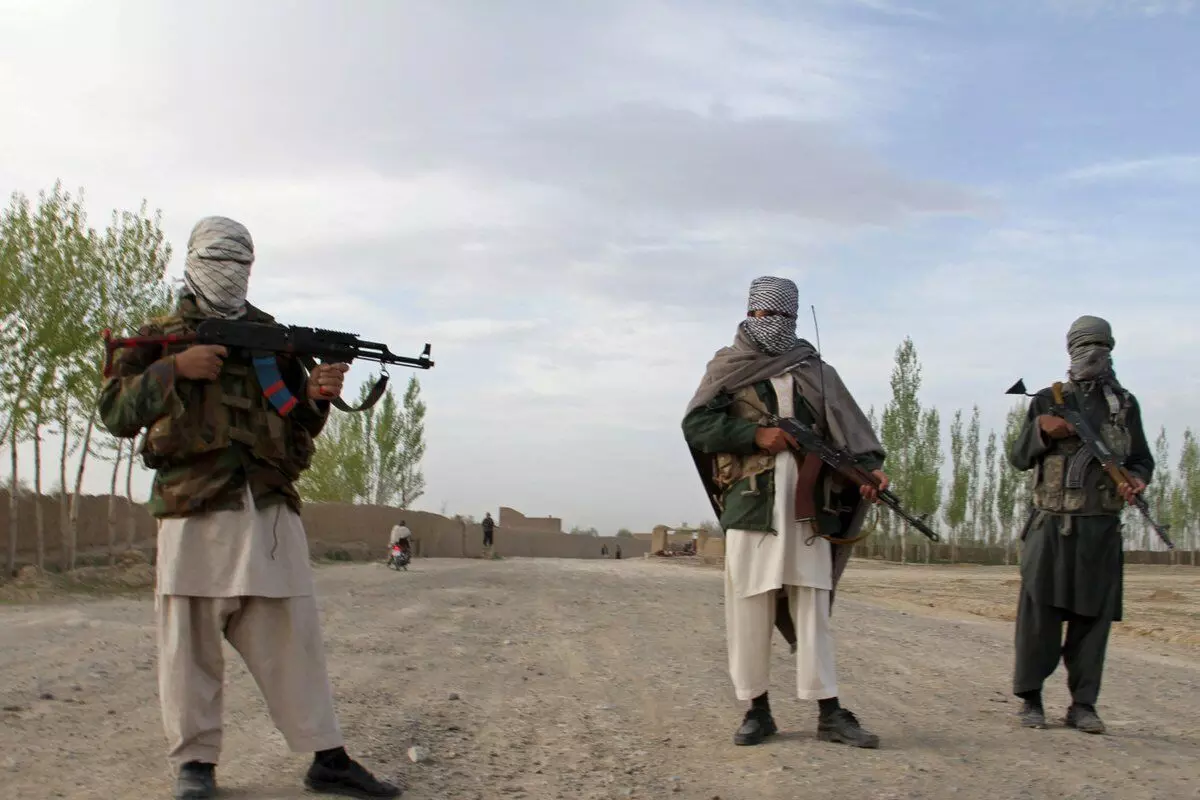An uneasy calm
Pakistan must realign its global engagement while also building its internal strength to foil the destabilising endeavours by terror groups to topple the existing regime

According to most of the security analysts in Pakistan, the prevailing political tumult in the country is heading towards uncertainty and chaos. People are gradually losing their trust in the government as well as in institutions like the judiciary and military. Many Pakistani watchers are of the view that the ongoing developments are giving an impression that the state institutions have already exhausted their constitutional and legal options. This is evident from the fact that the government is trying to find a refuge behind the convenient and fledgling security scenario amid scheduled elections in Punjab and Khyber Pakhtunkhwa (KP).
Meanwhile, a review of the literature produced and recently propagated by the Islamist terror groups, including Al Qaeda, Islamic State-Khorasan and Tehreek-i-Taliban Pakistan, categorically reveals a strategy to remove what they describe as the ‘puppet’ and ‘corrupt’ regimes through spiraling chaos in society, either through violence or propaganda. When the power elites themselves are triggering chaos in the country, why wouldn’t the terrorists take the opportunity to escalate the crisis to another level? The Tehreek-e-Taliban Pakistan (TTP), however, does not seem to have the capability to aggravate chaos to a level that causes an unprecedented delay in elections. At least that's the prevailing general perception.
The TTP has been a major violent factor in the last 15 years in Pakistan, and has seen many ups and downs. In 2014 and later years, Pakistan’s security forces decimated its network and forced it to flee to Afghanistan. However, in recent years, the TTP has gained operational prowess, and the Taliban regime in Afghanistan has played a major role in empowering and emboldening the outfit. Yet, there is a need to have an objective assessment of the actual strength of the terrorist group to evaluate the potential impact on the upcoming elections.
If one looks at last month’s statistics, the TTP, through its media publicity, claimed it had perpetrated 42 attacks in Pakistan, including 39 in KP, and three in Balochistan, which led to 130 casualties among security forces. This may be an exaggerated account, as reports by various think tanks that monitor the security situation very minutely, reveal that the TTP was involved in about 10 terror attacks in March. However, the TTP managed to perpetrate a few major high-impact attacks in KP, targeting the army and police officials. Besides intensifying its attacks, the banned TTP is also bringing more militant groups and commanders into its fold. At least four new groups recently announced their merger with the TTP this March.
Continuing its publicity blitz, the TTP is expanding its influence while effectively using social media platforms and increasing the outreach of its publications in various languages. Recently, it has started to publish an Urdu magazine for women, titled ‘Khawateen ka Jihad’ (‘women’s jihad’), imploring women to support the ‘jihad’. These publications continuously project the chaos in Pakistan and its power elites’ inability to deal with the crisis. The TTP is also projecting the Taliban regime in Afghanistan as a successful model and promises the same in Pakistan.
After facing bitter criticism for its failure to handle threats of terror, particularly in view of the upcoming elections in two provinces, Pakistan’s foreign policy has come under sharp attack by known quarters. According to many, despite the high quality of its diplomats, Pakistan’s diplomacy declined in value. The country has long been in a state of crisis that has adversely affected its foreign relations. This is not the only reason why Pakistan is struggling abroad. Foreign policy challenges have become too complex, and it is responding with poor policy choices because of internal weaknesses, poor national priorities, personalised governance, and a lack of direction. Experts, meanwhile, feel that today’s geopolitical environment is defined by shifting alliances, uneasy power balances, and overlapping coalitions among big powers amid an unsteady world order led by the US and China.
In the backdrop of this scenario, Pakistan’s foreign policy keeps beating to the rhythm of an extinct world. Its foreign relations have had hardly any success stories. There has been a visible decline from the “successful” diplomatic maneuvering of the past that had leveraged Pakistan’s geopolitical position and defense capability to the country’s advantage. Years of living perilously has weakened Pakistan which is now dependent on others. Its diplomacy has now been left only to seek loans and bailouts. That is shrinking Pakistan’s diplomatic space. Pakistan may not be isolated but is certainly stranded.
Authoritative circles also assess that to develop relations with both China and the US, Pakistan’s diplomacy needs to be flexible. China is a strategic partner but cannot be a substitute for other relations. This needs to be underlined. The ties with China may be indispensable, but with America, they are necessary. Pakistan also needs to review its ties with India. The old model has become unsustainable, supported neither by its own diminished national strength nor by friends lured by the economic and strategic opportunities that India offers. And it is no help to Kashmiris either. This seems a significant point.
These opportunities can’t be capitalised without global engagement, internal strength and freedom from external dependence. These views are well articulated by Touqir Hussain in a recent write up in a prominent Pakistani daily. Whatever, an uneasy calm looms large over Pakistan horizon.
The writer is an IPS officer, Adviser NatStrat, security analyst and a former National Security Advisor in Mauritius. Views expressed are personal



